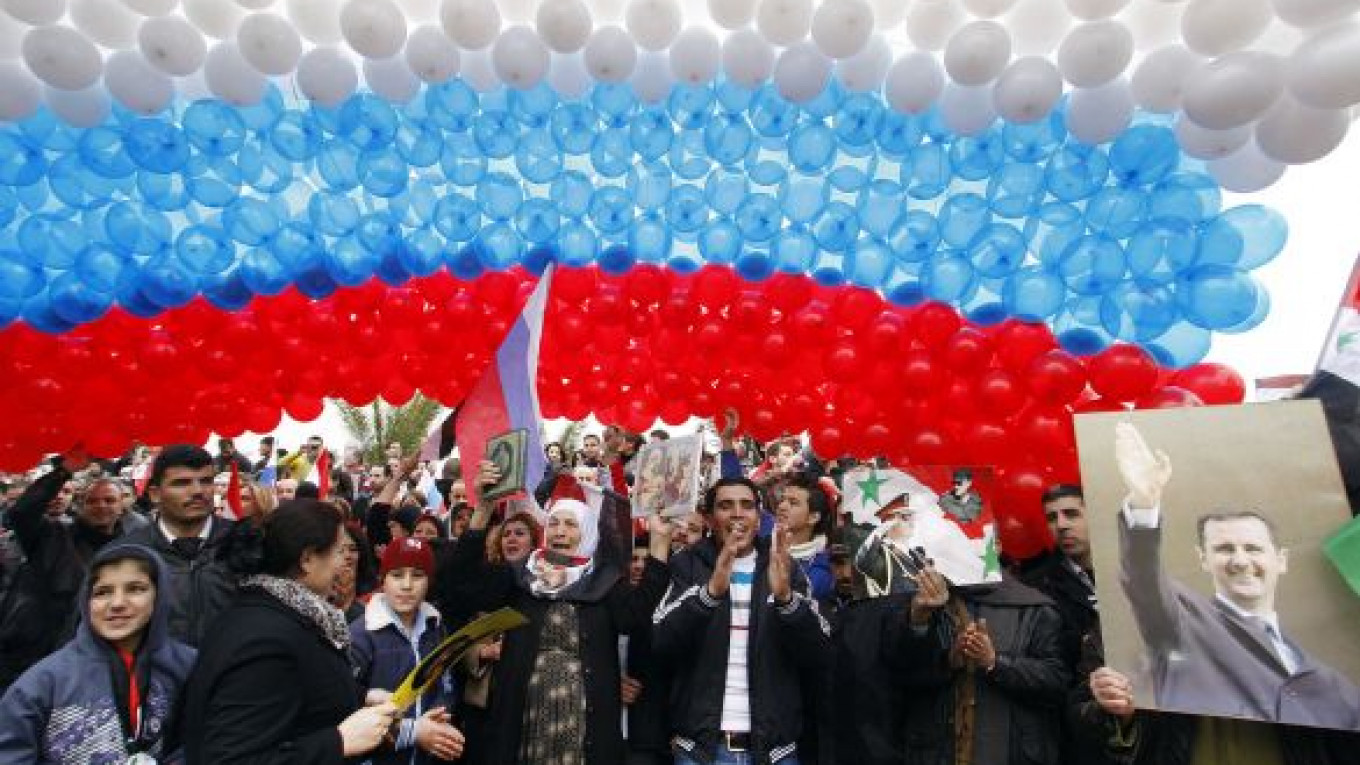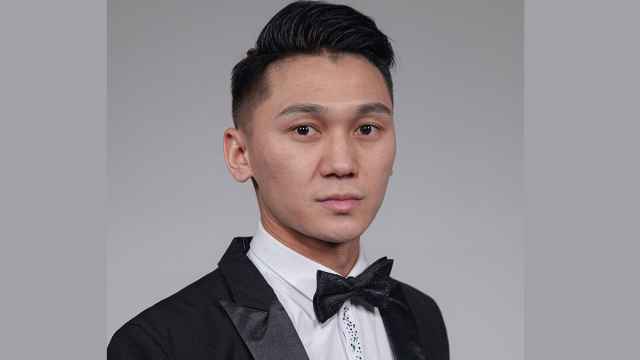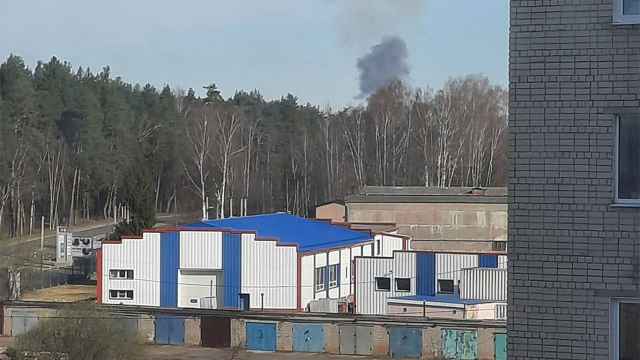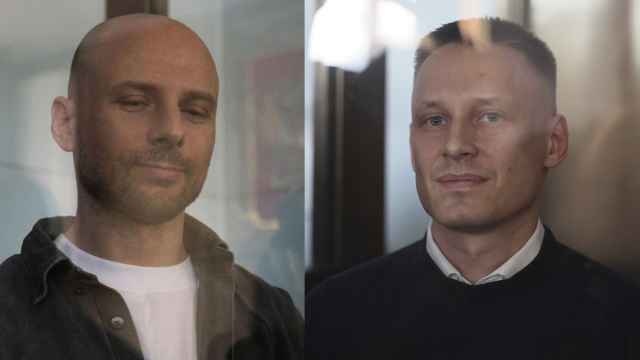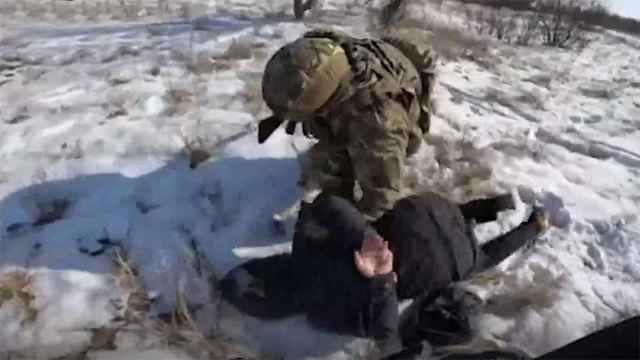Foreign Minister Sergei Lavrov met with Syrian President Bashar Assad in Damascus on Tuesday, sending a clear message that Russia intends to stand by its strongest ally in the Middle East amid an international outcry over the country's response to a civil revolt.
Lavrov and foreign intelligence chief Mikhail Fradkov were given a royal welcome by thousands of pro-Assad supporters, who rallied in the streets waving Russian flags in thanks to Russia's veto over the weekend of a UN resolution calling for tough sanctions on the Syrian regime. Syrian state television declared that 1 million people came out to greet Lavrov.
"Efforts to stop violence have to be met with dialogue by all the political forces," Lavrov said after the meeting, Interfax reported. "Today we received confirmation of the readiness of the president of Syria for this work."
The visit by Russia's most senior diplomat came as several countries — including the United States and Britain — pulled their ambassadors out of Damascus and pressure mounted on Assad over a bloody crackdown on an armed insurrection against his authoritarian rule.
"Today was a disappointing one for all those who aspire to build a new kind of relationship between the United States and Russia. Great powers have great responsibilities," U.S. Ambassador to Russia Michael McFaul wrote on his Facebook page. "[I am] Hoping for new progress in coming hours and days before it's too late in Syria."
Syria's opposition had earlier turned down Moscow's offer to organize negotiations in Russia between them and government leaders.
The United Nations has reported that the violence in Syria has left at least 5,400 civilians dead. Syrian officials say 2,000 soldiers have died while fighting what they claim are foreign-backed rebels.
While Lavrov said Assad promised to open up dialogue with opposition leaders, violence continued to escalate in the country as government forces resumed the bombardment of the city of Homs, an opposition stronghold, Reuters reported.
Analysts said the presence of Russia's intelligence chief on the trip indicated that Russia will continue its military support to Syria, a major ally dating back to Soviet times.
On Saturday, Russia and China blocked a UN Security Council resolution calling for increased pressure on Assad. Both Moscow and Beijing said they were worried foreign powers would use the resolution as a basis for a military intervention similar to that in Libya, where rebels — largely helped by a NATO bombing campaign — overthrew and killed Colonel Moammar Gadhafi last year.
Lavrov earlier said "regime change is not our occupation" and stated that the resolution put all the blame on the Assad government's side and none on the opposition.
"There is not one single, but many sources of violence," Lavrov said.
Lavrov's sentiments were backed by some Russian Middle East experts who believe that the struggle against Assad's secular regime could unleash radical Islamist forces in the country.
While fears over the increased radicalization of the Middle East are real, experts say Russia's main concern is to keep Syria as its only dependable ally in the Middle East.
"The loss of Syria would be catastrophic, and we should hold on to it at any price," said Igor Korotchenko, a military expert and an editor of the Natsionalnaya Oborona magazine.
He said Fradkov's presence shows that Russia is serious in defending the interests of its old ally.
"Russia can provide Assad intelligence information that foreign countries might be behind the opposition" he said.
"Primakov was Fradkov's master, if you will, regarding the Middle East," Theodor Karasik, a senior expert with the Enigma think tank in Dubai, told the Moscow Times.
"Fradkov's travel to Syria is important because this trip fits into other reporting about GRU assistance to defend Damascus in a Western-Arab coalition military response," Karasik said.
Military expert Alexander Perenzhiyev called Syria Russia's "last frontier" in the Middle East.
"If it is lost, we will be valued as a second-class state," he said, adding that Russia might even deploy military advisers to counter the threat of foreign intervention.
His position was echoed by presidential candidate Vladimir Zhirinovsky, leader of the nationalist Liberal Democratic Party.
"Let's hope that Russia will not leave Syria alone," he said, according to Interfax. "We have to support all countries which resist the United States."
Another presidential candidate, Communist Party leader Gennady Zyuganov, said Russia should continue efforts to force dialogue between the opposition and the government.
"But the opposition should be looked at carefully to make sure who are criminals sent by the West to topple a legitimate power," he said.
Billionaire presidential candidate Mikhail Prokhorov said Tuesday that while he understands the criticism of Assad, he does not support the radical opposition. He said Russian business and military interests in Syria — which amount to $20 billion — should be taken into account.
Syria is among the largest buyers of Russian weapons, and contracts signed with the country amount to $3.5 billion, Vyachaslav Dzirkaln, deputy head of the Federal Service for Military-Technical Cooperation said in November.
The country is also home to a small Russian naval base built during Soviet times, which functions as a Russian-only port beyond the borders of the former Soviet Union.
Fyodor Lukyanov, editor of political magazine Russia in Global Affairs, told Reuters on Tuesday that Lavrov's visit was an indication to Assad that Russia did "everything possible" by vetoing the UN resolution.
"Now the main task for Lavrov is to tell Assad that if there is no visible change in Syria, then regardless of the Russian position he should be bracing for external military measures," Lukyanov said.
A Message from The Moscow Times:
Dear readers,
We are facing unprecedented challenges. Russia's Prosecutor General's Office has designated The Moscow Times as an "undesirable" organization, criminalizing our work and putting our staff at risk of prosecution. This follows our earlier unjust labeling as a "foreign agent."
These actions are direct attempts to silence independent journalism in Russia. The authorities claim our work "discredits the decisions of the Russian leadership." We see things differently: we strive to provide accurate, unbiased reporting on Russia.
We, the journalists of The Moscow Times, refuse to be silenced. But to continue our work, we need your help.
Your support, no matter how small, makes a world of difference. If you can, please support us monthly starting from just $2. It's quick to set up, and every contribution makes a significant impact.
By supporting The Moscow Times, you're defending open, independent journalism in the face of repression. Thank you for standing with us.
Remind me later.


